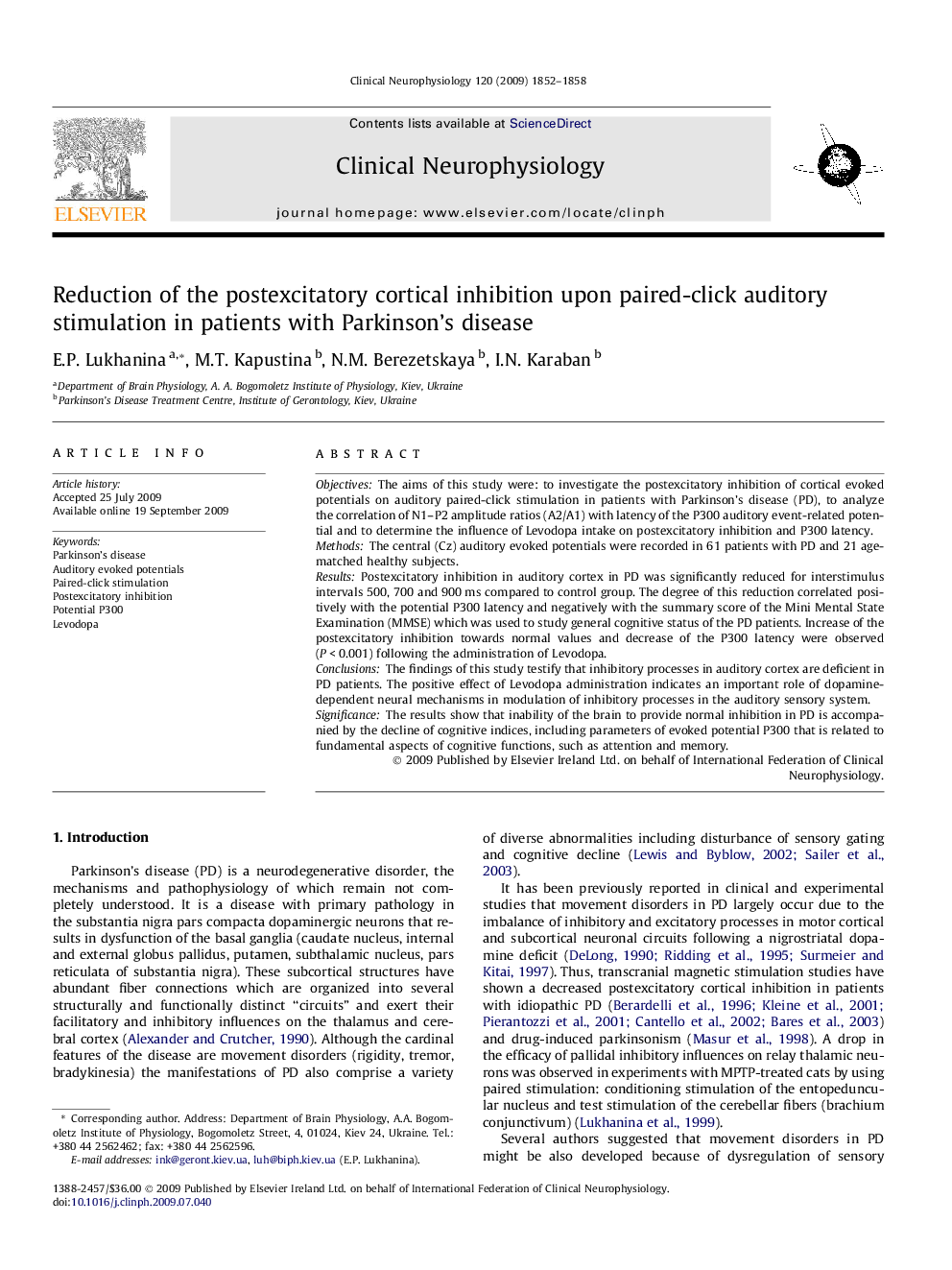| Article ID | Journal | Published Year | Pages | File Type |
|---|---|---|---|---|
| 3046154 | Clinical Neurophysiology | 2009 | 7 Pages |
ObjectivesThe aims of this study were: to investigate the postexcitatory inhibition of cortical evoked potentials on auditory paired-click stimulation in patients with Parkinson’s disease (PD), to analyze the correlation of N1–P2 amplitude ratios (A2/A1) with latency of the P300 auditory event-related potential and to determine the influence of Levodopa intake on postexcitatory inhibition and P300 latency.MethodsThe central (Cz) auditory evoked potentials were recorded in 61 patients with PD and 21 age-matched healthy subjects.ResultsPostexcitatory inhibition in auditory cortex in PD was significantly reduced for interstimulus intervals 500, 700 and 900 ms compared to control group. The degree of this reduction correlated positively with the potential P300 latency and negatively with the summary score of the Mini Mental State Examination (MMSE) which was used to study general cognitive status of the PD patients. Increase of the postexcitatory inhibition towards normal values and decrease of the P300 latency were observed (P < 0.001) following the administration of Levodopa.ConclusionsThe findings of this study testify that inhibitory processes in auditory cortex are deficient in PD patients. The positive effect of Levodopa administration indicates an important role of dopamine-dependent neural mechanisms in modulation of inhibitory processes in the auditory sensory system.SignificanceThe results show that inability of the brain to provide normal inhibition in PD is accompanied by the decline of cognitive indices, including parameters of evoked potential P300 that is related to fundamental aspects of cognitive functions, such as attention and memory.
